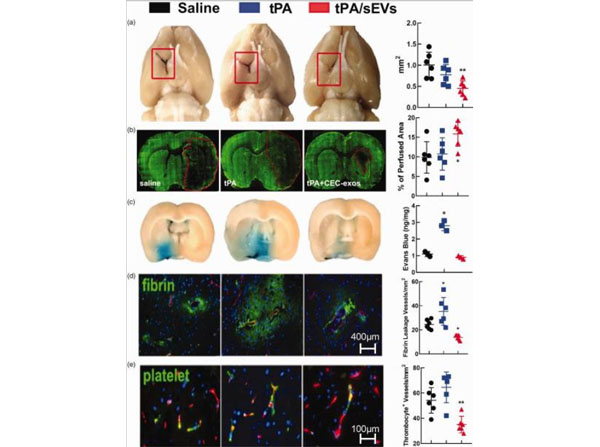Datasheet is currently unavailable. Try again or CONTACT US
Collagenase Type 4
MB-121-0100
100 mg
Lyophilized
Clostridium histolyticum
Shipping info:
$50.00 to US & $70.00 to Canada for most products. Final costs are calculated at checkout.
Product Details
Collagenase Type 4 - MB-121-0100
Clostridium histolyticum, Bacterial collagenases, collagenase, caseinase, clostripain, tryptic, ColH, ColG
Clostridium histolyticum
Enzyme
Target Details
colH, colG - View All colH, colG Products
Collagenase type 4 is partially purified and is designed to be especially low in tryptic activity to limit damage to membrane proteins and receptors. The collagenase assay is a modification of the Mandl collagen digestion procedure wherein collagenase is incubated for five hours with native collagen and the extent of collagen breakdown is determined using the Moore and Stein, JBC, 176, 367, (1948) colorimetric ninhydrin method. Amino acids released are expressed as micromoles L-leucine per milligram collagenase in 5 hours at 37°C, pH 7.5. Caseinase activity, a measure of non-specific proteolytic activity, is determined using the above assay and substituting 25 milligrams vitamin free casein for the collagen substrate. Caseinase activity is calculated as for collagenase activity. Clostripain activity is measured after activation in 2.5 mM dithiothreitol (DTT). One unit hydrolyzes one micromole of BAEE per minute at 25°C, pH 7.6, after activation. Tryptic activity is assayed using the same BAEE method as clostripain, but without activation.
Q9X721 - UniProtKB
Application Details
Collagenase Type 4 contain lower tryptic activity levels to limit damage to membrane proteins and receptors but with normal to above normal collagenase activity. It is suggested for pancreatic islet primary isolation. Collagenase is typically used at concentrations from 0.05 % to 0.5 % (w/v) in balanced salt solutions such as Hank’s, Earle’s and others. For best results the precise mixture of collagenase and proteolytic activities must be tailored to the tissue to be dissociated. Specific conditions for reactivity should be optimized by the end user.
Formulation
275 u/mgdw by dry weight
None
None
None
10.0 mL
Restore with deionized water (or equivalent)
Shipping & Handling
Ambient
Store vial at 2 - 8 ° C prior to opening. Aliquot contents and freeze at -20° C or below for extended storage. Avoid cycles of freezing and thawing. Centrifuge product if not completely clear after standing at room temperature. Dilute only prior to immediate use.
Expiration date is one (1) year from date of receipt.
Crude collagenase preparations contain several isoforms of two different collagenases, a sulfhydryl protease, clostripain, a trypsin-like enzyme, and an aminopeptidase. This combination of collagenolytic and proteolytic activities is effective at breaking down intercellular matrices, the essential part of tissue dissociation. One component of the complex is a hydrolytic enzyme which degrades the helical regions in native collagen preferentially at the Y-Gly bond in the sequence Pro-Y-Gly-Pro, where Y is most frequently a neutral amino acid. This cleavage yields products susceptible to further peptidase digestion. Crude collagenase is inhibited by metal chelating agents such as cysteine, EDTA or o-phenanthroline but not DFP. It is also inhibited by α2-macroglobulin, a large plasma glycoprotein. Ca2+ is required for enzyme activity. Particular enzymatic profiles of each collagenase have been correlated with the tissues from which the cells for study were obtained (or with the uses to which the cells are put) and as a result of the correlations several types of crude collagenases have been established. Crude collagenases are widely used in enzymatic primary cell isolation and tissue dissociation procedures. Most researchers employ either crude collagenase preparations such as Types 1, 2, 3, and 4 or chromatographically purified collagenase; the latter usually combined with secondary enzymes such as elastase, hyaluronidase, etc. Collagenase is ideal for researches focused in Stem Cell and Biomarker Research.
This product is for research use only and is not intended for therapeutic or diagnostic applications. Please contact a technical service representative for more information. All products of animal origin manufactured by Rockland Immunochemicals are derived from starting materials of North American origin. Collection was performed in United States Department of Agriculture (USDA) inspected facilities and all materials have been inspected and certified to be free of disease and suitable for exportation. All properties listed are typical characteristics and are not specifications. All suggestions and data are offered in good faith but without guarantee as conditions and methods of use of our products are beyond our control. All claims must be made within 30 days following the date of delivery. The prospective user must determine the suitability of our materials before adopting them on a commercial scale. Suggested uses of our products are not recommendations to use our products in violation of any patent or as a license under any patent of Rockland Immunochemicals, Inc. If you require a commercial license to use this material and do not have one, then return this material, unopened to: Rockland Inc., P.O. BOX 5199, Limerick, Pennsylvania, USA.

